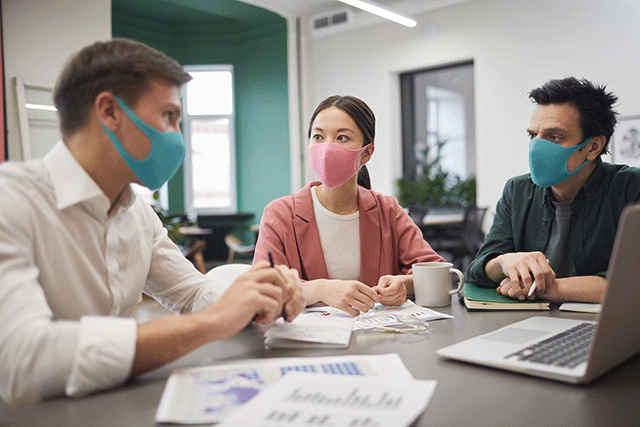
RST Alums Keep Internships on Track
RST E-News Fall 2020

The spring and summer semesters are prime times for RST juniors and seniors to complete internships required for graduation. When the coronavirus pandemic shut all but essential businesses down in March, students in the middle of internships suddenly found their positions terminated, and summer internships also were put in jeopardy. Department Head Carla Santos and Clinical Associate Professor Mike Raycraft knew they’d have to come up with a workable solution, and quickly.
To their great relief, a group with a solid history of supporting RST and its students stepped forward to help.
“As we began brainstorming to ensure RST seniors were able to complete their capstone internship experiences and graduate, some of our alumni—who themselves completed internships as undergraduates in RST—as well as longstanding collaborators reached out, asking how they could be of service,” Dr. Santos said. “The dialogue evolved from there. It was rather organic.”
RST alumni working with major league baseball, basketball, and football teams, sport and entertainment marketing groups, sport governing bodies, and nonprofit youth support organizations stepped up to provide students with meaningful, real-world opportunities to learn about challenges facing RST organizations and to recommend solutions.
Megan Malone, corporate partnerships manager for the Chicago Bears, agreed to help because she knew from her own experience as an RST undergraduate how important the internship is and credits her own internship with jump starting her career in sports. She challenged students to develop strategies to help teams prepare for a 2020 NFL season played without fans in the stands. She also charged them with examining the pandemic’s impact on corporate sponsorship, ticket sales, marketing, and merchandise. Megan summed up the experience as “very positive” and said she was thoroughly impressed by the students.
“They came to our first [virtual] meeting very well-prepared, gave an overview of initial research, and asked thoughtful and engaging questions throughout the process,” she said. “Their final report was very thorough, addressed all of the topics that were requested, and highlighted their unique perspectives that went above and beyond what was required.”
In a traditional internship, a student works on-site with one organization for an entire semester. The model embraced by RST in response to the pandemic had students working in teams of three with professionals from three different organizations. This approach enabled the professionals to explore the skill levels and preparation of their future colleagues and to contribute to a dialogue about workforce education needs. It also offered a benefit to students that traditional internships may not.
“Every student worked with organizations representing each of our areas of focus, enabling students to explore and understand synergies among recreation, sport, and tourism, and to consider the role of change management in current industry practices,” Dr. Santos said. Students responded positively to the program, which also included bi-monthly Zoom chats with young industry professionals who provided a role model for current students while discussing current issues in their fields.
Senior Amelia Wagner, who had planned to intern with the St. Louis Cardinals’ Cardinals Care and community relations staff over the summer, instead found herself working with a regional director of the New York State Office of Parks, Recreation, and Historic Preservation, the corporate partnerships manager of the Chicago Bears, and a senior vice president and account coordinator from Paragon Marketing Group. She judged the experience “extremely successful.”
“Not only did I learn from incredible industry professionals from all three sectors of RST, but I also expanded my network and sharpened my communication skills,” she said. “I also gained a clearer perspective on my future career path.” She described the work she did for each organization as “relevant, hands-on, and incredibly useful,” adding that it gave students opportunities to demonstrate and enhance their research, analytic, creative, and problem-solving skills.
Taking into account the overwhelmingly positive feedback given by students and professionals alike, Dr. Santos said she and others within RST are exploring how the department can make this collaborative a regular feature of the curriculum. “As virtual programming and opportunities grow, so does our ability to connect our students with our amazing alumni around the world," she said.
